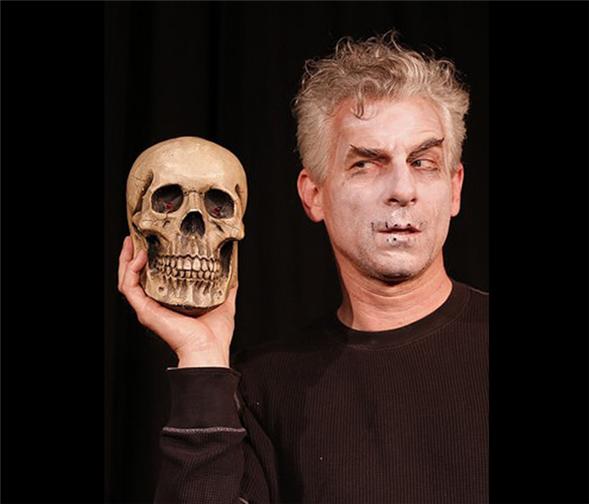Translate Page

The Brick's new festival subverts our view of the Bard
---
I have seen Romeo and Juliets in abandoned parking lots, Othellos in industrial warehouses, Tempests on a boat (ok, just the once), and Midsummers in too many outdoor parks to name. It seems the only place I haven't seen a Shakespeare play is on a "regular" proscenium stage.
By now, seeing the Bard in an old-school theatre, or even in a black box, would feel radical.
The Brick – the 70-seat venue in Williamsburg that's dedicated to experimental work – is one such black box. In some ways it's the last place I'd imagine finding a Shakespeare play, least of all an entire festival devoted to his canon. But Michael Gardner, the Brick's artistic director, is no stranger to subverting expectations. This month his venue hosts Shakespeare in the Theater, which features no fewer than 13 Bard-ish productions, running through August 7.
"True, we tend to boost new writers almost exclusively," Gardner says, when I point out how his theatre is best known for presenting world premieres by emerging artists. For instance, the Brick recently closed its first-ever Trans Theatre festival and annually hosts the New York Clown Theatre Festival, among other offerings.
"But we also champion subversion," Gardner explains. "What could be more seditious for an experimental theatre than a traditional Shakespeare festival?"
He allows that the impulse to program Shakespeare in the Theater was a bit "reactionary" on his part: "There's a sweeping romance to Shakespeare in the Park. It dovetails perfectly with the Bard's obsession with nature. I'm a sucker for that. But in practice, it results in a lot of yelling or microphones. Shakespeare in a small theatre is my cheeky way of saying 'traditionalism is the new experimentalism.'"
Not that the productions on tap are traditional, per se. When selecting the participants, Gardner looked for proposals that were "risky, hyper-competent, and confident."
{Image1}
To wit: Loup Garou Internationale's The Tragedy of Hamlet: The Prince of Denmark, which runs July 9 – 24, purports to be written by Christopher Marlowe and describes itself as a "bare-bones manifestation." Meanwhile, Tux & Tom's Hamlet, or I Shall Mourn the Rivers (July 11 – Aug 2) draws from the writings of Arundhati Roy, Judith Butler, and Slavoj Žižek, examining the nature of statehood and citizenry as seen through their eyes.
Other inventive stagings include a DJ-led Julius Caesar by the National Shakespeare Theatre of Brooklyn, an all-female Much Ado by Easy Leap Theatre Company, and a two-man Antony & Cleopatra by Duo Muzi. Last but not least, This England: The Complete Kings 1377-1485, by Strange Harbor, condenses both his tetralogies into roughly 150 minutes.
Gardner feels there's something to be gained from putting this much Shakespeare in a tiny space. "You have a constraint," he says. "There's intimacy and connection. There's a sense of worlds erupting in front of you, combined with the subtlety of the poetry offered at a whisper."
---
Eliza Bent is a writer and performer based in Brooklyn.
Top photo -- of The Tragedy of Hamlet: The Prince of Denmark -- by Gyda Arber.